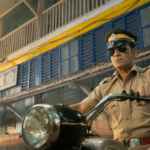
The story of French serial killer Charles Sobhraj, portrayed in the BBC-Netflix drama The Serpent, is well-known.
Now, a new Netflix film tells the lesser-known story of an Indian police officer who captured the notorious killer – not once, but twice.
Inspector Zende stars Bollywood actor Manoj Bajpayee in the titular role of the policeman, while actor Jim Sarbh plays Sobhraj – reimagined as Carl Bhojraj.
The film unfolds over three weeks in 1986 as the policeman and the criminal play a cat-and-mouse game.
Warning: Spoilers below for the Netflix film
It starts on 16 March that year with Sobhraj escaping from Delhi’s high-security Tihar jail, where he had been serving a 12-year prison term since 1976 for murdering a French tourist.
He feeds drug-laced sweets to the staff and nearly all the prisoners – he’d falsely claimed that it was his birthday – and flees.
A few days later, when he turns up in Mumbai, Inspector Madhukar Zende is called in since he had already arrested him once, in 1971.
The film’s release has brought Mr Zende – who has a cameo in the film as the “OG” or the original Inspector Zende – back into the headlines in India, decades after he made the arrests.
I spoke to Mr Zende and read his recent book, Mumbai’s Most Wanted, to piece together the story of Sobhraj’s arrest.
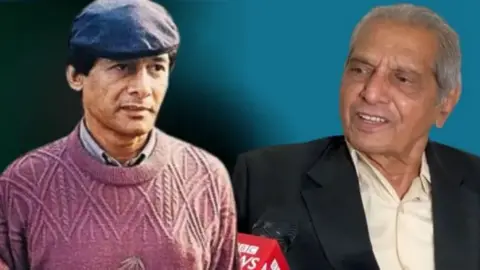
The retired 88-year-old officer told the BBC that he had arrested many hardened criminals and members of Mumbai’s underworld, but it was the notoriety of “the international criminal Sobhraj” that earned him the reputation of “a supercop”.
Born to an Indian father and a Vietnamese mother in Saigon, Sobhraj grew up in France, where his mother moved after marrying a French soldier.
He was little-known when he first hit the headlines in India in 1970 for an audacious heist at a jewellery store in Ashok, a five-star hotel in Delhi.
When Inspector Zende captured him a year later in Mumbai, the city papers described it as “One more feather in Mumbai police’s cap”.
Sobhraj was handed over to the Delhi police, who were handling the jewellery heist, but within days, he had escaped by climbing down a bathroom pipe in a hospital where he had been admitted after he complained of appendix pain.
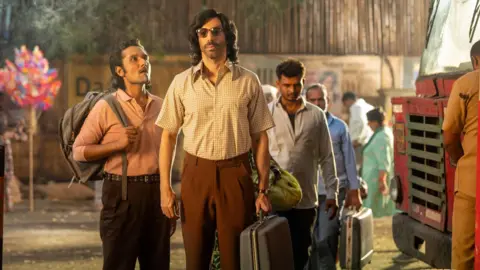
Over the next five years, Sobhraj came to be known as a notorious serial killer and was linked to more than 20 murders across India, Nepal and Thailand, in which the victims were drugged, strangled, beaten or burned.
For his knack for deceptive disguises and ability to escape prison, he was dubbed “The Serpent” – it later became the title for a hit BBC and Netflix series about the killer, which was released in 2020.
Another name that stuck was the “Bikini Killer” for his tendency to target young Western women on the hippie trail in Asia. Interpol issued a Red Corner notice against him, and police in dozens of countries were looking for him.
His luck ran out in the summer of 1976 when Delhi police arrested him for drugging 40 French university students and trying to rob them in the Indian capital.
A court in India also convicted Sobhraj for murdering a French tourist in a Mumbai hotel, and he was sent to Tihar jail to serve a 12-year term.
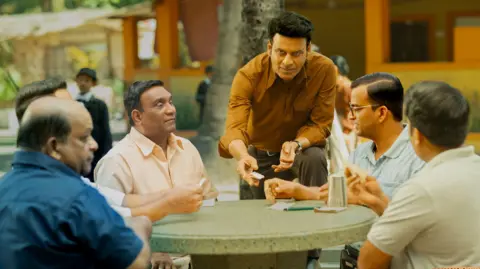
Mr Zende says he found the news of Sobhraj’s escape from Tihar in 1986 “troubling”.
“He was known for using sedatives and had given policemen the slip not only in Delhi but in several other cities around the world. There was no reason for anyone to trust him,” he says.
Two weeks after Sobhraj’s jailbreak, Mr Zende was summoned by his boss – “he remembered that I had caught the Bikini killer once” – and asked to hunt for him again.
The new Netflix film mostly tells the story of Inspector Zende and his team, who then travel to Goa to catch him.
The assignment, he writes in the book, was exciting for a number of reasons.
Top of the list was the possibility of rearresting Sobhraj. But this was also the first time he would take a flight and stay at a five-star hotel. The prospect of eating seafood and the famous Alphonso mangoes added to the excitement.
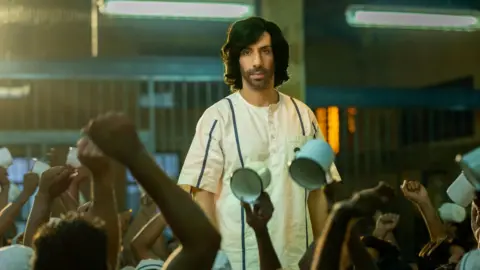
After days spent combing the bars and beaches, Mr Zende say the team received confirmation that Sobhraj was indeed in Goa. They then zeroed in on the O’Coqueiro restaurant in Porvorim – the only place which offered affluent foreigners the facility to make quick international calls.
“We suspected that he was in Goa to take a boat to the US, where his wife lived, and would be calling her from O’Coqueiro,” he said.
On 6 April, the team reached the restaurant early and took up positions. In the evening, there was an India-Pakistan hockey match being shown live on TV and a wedding at the venue.
“By 8 pm, both the hockey match and the wedding were in full swing. At about 10:30 pm, when Sobhraj walked in, I recognised him instantly,” Mr Zende writes.
“The 10 years of not seeing him fell away in an instant.”
The sensational arrest made Mr Zende a celebrity. The morning newspapers saluted him with “Zendabad” – a pun on zindabad, the Urdu word for long live.
He was on magazine covers, was felicitated by the biggest Bollywood actors and singers who asked him for his autograph, the federal home minister flew in from Delhi to meet him, and he received the President’s medal for bravery.
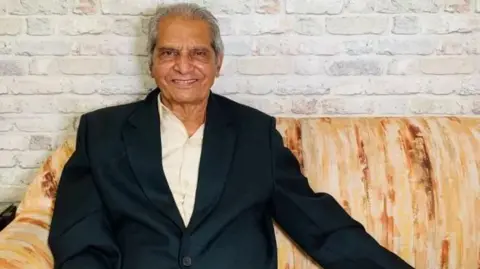
The best recognition, however, came from D’Coqeiro – a Zende platter that costs 2,500 rupees ($28; £21) and serves six.
Sobhraj, meanwhile, returned to prison, where he spent another decade.
He later claimed that his escape was a ploy to get his sentence extended and avoid extradition to Thailand, where he was wanted for five more murders and was sure to get the death penalty.
Following his release in 1997, he returned to Franc,e where he lived in Paris and gave paid interviews to journalists.
In 2003, he returned to Nepal and was arrested and spent 19 years in jail there for the 1975 murders of an American and a Canadian. In 2022, a court freed him on account of his age and good behaviour and he was deported to France.
I ask Mr Zende if he still keeps tabs on Sobhraj today.
“He’s served his sentence. He’s 81 years old now. I’m not concerned about him anymore,” he says.